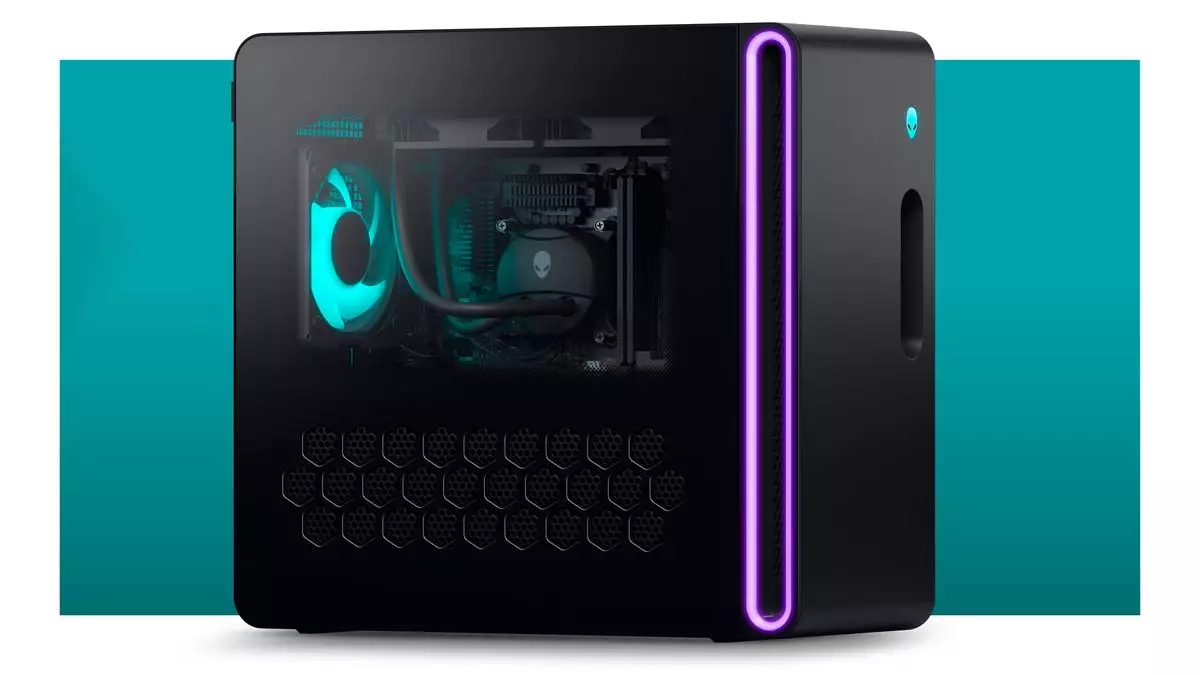When it comes to assembling a powerful gaming setup, the choice of a gaming PC can be daunting, particularly with so many options flooding the market. The recent surge in demand for high-performance components, especially graphics cards like the RTX 4070 Ti Super, has made it increasingly difficult to find a pre-built machine that combines quality with affordability. In this article, we will explore a prominent choice in the market and examine other alternatives while considering the implications of proprietary hardware.
One of the most notable contenders is the Alienware Aurora R16, available for $1,700—$400 off the regular price. This desktop is outfitted with an RTX 4070 Ti Super and an Intel Core i7 14700F, a combination that promises excellent performance across various gaming resolutions. With its capabilities, the system can deliver smooth frame rates in both 1440p and 4K gaming scenarios.
Moreover, it boasts 16 GB of DDR5-5600 RAM and a spacious 1TB SSD, essential components for modern gaming. However, an area of concern arises with the RAM; given the price point, one would expect at least 32 GB to be offered, which limits upgrade potential in games that require more memory. The presence of liquid cooling adds an intriguing touch to the system, although inconsistencies in reporting raise questions about its efficacy.
One critical aspect of Alienware products is their proprietary parts. While they offer sleek designs and efficient cooling solutions, the convenience often comes with a significant trade-off—upgradeability. With Alienware, users may find themselves limited by the two DIMM slots available for memory upgrades, forcing a complete kit purchase when looking to enhance performance. This inflexibility poses a dilemma for potential purchasers who may feel constrained by the machine’s future adaptability.
For gamers who prioritize customizability, this is a significant consideration. Instead of investing in a pre-built system like the Alienware, opting for more modular or conventional gaming PCs may render better long-term value.
In the landscape of gaming desktops, the ABS Tempest Aqua emerges as a worthy alternative. Priced at $1,750, it also features the RTX 4070 Ti Super and the Intel Core i7 14700F. What sets it apart, however, is its generous 32 GB of DDR5-6000 RAM, which can significantly enhance multitasking and resource-heavy gaming experiences. Additionally, it retains the 1TB SSD standard, ensuring ample storage for game libraries.
For those that are content with their current budget, the Alienware Aurora R16 still presents a strong case with decent specs. However, if the extra $50 is not a burden, the ABS model appears to deliver superior performance and future-proofing capabilities.
For gamers looking to buy a new PC, timing can play a crucial role. With major sales events such as Amazon’s October Prime Day approaching, it could be worth holding off on a purchase to take advantage of possible discounts. Events like these frequently lead to attractive deals that may allow access to higher-end hardware for the same budget.
Ultimately, while the Alienware Aurora R16 presents a solid option, exploring alternatives can often yield better results, particularly for those keen on future upgrades and customization. In this fast-evolving tech landscape, identifying the right setup requires a blend of thoughtful analysis and astute timing.

